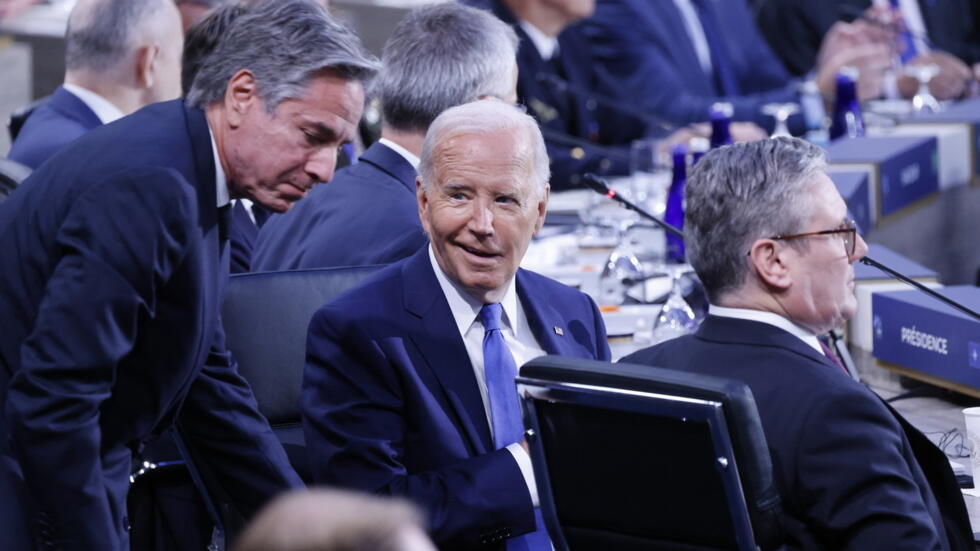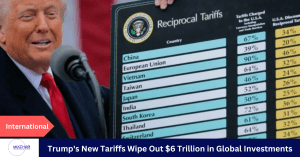Table of Contents
ToggleBiden Administration Pushes for Gaza Ceasefire as Diplomatic Efforts Face Setbacks
The Biden administration is ramping up its diplomatic efforts in the Middle East, working tirelessly to broker a ceasefire in Gaza. Despite setbacks, an anonymous U.S. official revealed that a potential deal was 90 percent complete, only for Israeli Prime Minister Benjamin Netanyahu to refute this claim shortly after. However, Secretary of State Antony Blinken soon reaffirmed the initial assessment, emphasizing that substantial progress had indeed been made. With just over four months left in President Joe Biden’s term, his administration remains hopeful that a resolution can be reached, despite the numerous obstacles that have delayed peace efforts for weeks.

A ceasefire breakthrough could provide a significant political win for Vice President Kamala Harris, particularly in her tight race against Donald Trump for the presidency. Many analysts believe that the United States has no choice but to continue pushing for peace, regardless of the challenges.
Since Israel announced on September 1 that Hamas had killed six hostages, including one U.S. citizen, the urgency for a truce has only intensified. Meanwhile, Netanyahu, leading a fragile far-right government, has vowed not to make any concessions, despite growing protests from Israelis who support a ceasefire deal.
On May 31, President Biden personally presented a proposal to halt the fighting for an initial six weeks, with both sides agreeing to release captives. The U.S. has been working closely with Qatar and Egypt to close the remaining gaps and finalize the agreement.
Key Issues: The Gaza-Egypt Border and Israeli Troop Presence
One of the most challenging issues in the negotiations has been the Gaza border with Egypt, particularly the Philadelphi Corridor. Netanyahu has demanded that Israeli troops maintain a presence in posts they seized from Hamas. U.S. mediators are working on a solution that balances the need for Israeli troop withdrawal from densely populated areas while addressing Egypt’s concerns. Egypt, the first Arab nation to make peace with Israel, is wary of Israel’s military presence near its border.
Political Stakes for Netanyahu and Hamas
Despite the Biden administration’s intense diplomatic efforts and a growing death toll, both Netanyahu and Hamas leader Yahya Sinwar see significant risks to their political survival if they agree to a deal. Merissa Khurma, director of the Middle East program at the Wilson Center, pointed out that Netanyahu is acutely aware of the U.S. political timeline, with the upcoming U.S. elections adding another layer of complexity to the situation.
President Biden initially offered strong support to Israel following the deadly Hamas attack on October 7, which claimed the lives of over 1,200 people, most of them civilians. However, Biden has since expressed frustration with Israel’s military campaign in Gaza, particularly its impact on civilians. The conflict has resulted in nearly 40,000 deaths, according to local authorities.
While Biden has criticized Israel’s approach, he has refrained from taking more drastic measures, such as cutting off U.S. military aid to the country. This stance has drawn criticism from some members of the Democratic Party’s left wing. On the other hand, Donald Trump and the Republican Party remain staunchly pro-Israel, with Trump’s relationship with Netanyahu being complicated by past disagreements.
Electoral Considerations: Harris vs. Trump
Polling from the Arab American Institute suggests that Kamala Harris could benefit from a tougher stance on Israel, while Trump may face more challenges if he adopts a similar approach. The complex political landscape in the U.S. underscores the difficulty both sides face in navigating the peace process.
U.S. Diplomacy: No Choice But to Keep Trying
Despite the challenges, experts agree that the U.S. has no choice but to continue working toward a ceasefire. Ghaith al-Omari, a senior fellow at the Washington Institute, pointed out that even though 90 percent of the agreement may be complete, the remaining issues are substantial. He acknowledged that U.S. negotiators are aware of the difficulties but are striving to keep the negotiations alive.
A lasting peace in Gaza is seen as essential for Saudi Arabia to move forward with recognizing Israel, a landmark development in Middle Eastern diplomacy. Blinken expressed hope that a deal could still be reached during Biden’s remaining months in office, with U.S. efforts focused on incentivizing Netanyahu, knowing how eager he is for Saudi normalization.
Al-Omari emphasized that the U.S. needs to keep pushing for a ceasefire to stabilize the region and prevent the violence from escalating further. The stakes are high, with the potential for more extensive conflict, including a war between Israel and Lebanon.
Conclusion
The situation in Gaza remains delicate, and while significant progress has been made, many obstacles still stand in the way of a ceasefire agreement. The Biden administration is determined to push forward, motivated by both political and humanitarian concerns. As the U.S. continues to navigate these complex negotiations, the hope is that a resolution can be reached before the situation worsens further, with both sides feeling the pressure to act before time runs out






